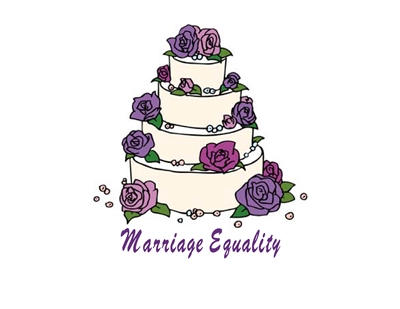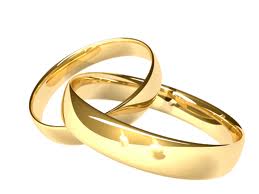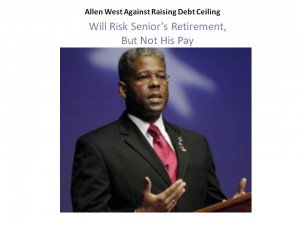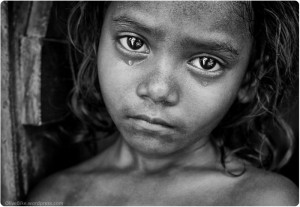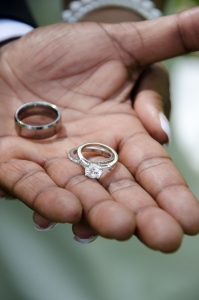 I wrote the following piece as the guest writer for May on WHOF.net.
I wrote the following piece as the guest writer for May on WHOF.net.
Although they have a long international history, the acknowledgment of same-sex unions as a civil (human) right, protected by written law, has been slow to emerge in modern times, and the quest for global marriage equality is barely out of babyhood. We’re on a slow road to progress, and the trip requires enormous patience and perseverance.
Marriage equality is the national law in ten countries around the world, the Netherlands (the first to recognize it, in 2001), Belgium, Spain, Canada, South Africa, Norway, Sweden, Portugal, Iceland, and Argentina. Some twenty other countries recognize some version of same-sex partnership law, including Brazil, France, Colombia, Spain, South Africa, Germany, Switzerland, the United Kingdom, Finland, Slovenia, and Ecuador, among many others. And another handful are currently considering marriage equality legislation: United Kingdom, Nepal, Luxembourg, Denmark, Finland, Australia, and Uruguay.
Of the total 196 countries in the world, that’s only slightly more than 5 percent that have fully government-sanctioned marriage equality, a woeful showing by any human rights measure. Recognition and protection of same-sex partnerships are all well and good, but as any suitor who wants to propose can testify, “I didn’t ask him to civil-union me.”
But LGBTQ and marriage equality are taking center stage in many countries across our increasingly interconnected world, and may be the human rights issue of our time, at least in the United States. Secretary of State Hillary Clinton said in a speech to the United Nations in December 2011, “gay rights are human rights.”
To equality-minded people, this claim is self-evident, but enormous resistance to the LTBTQ community by the heterosexual majority, backed by specious religious arguments—and a general human tendency to dislike and distrust those who are different from us—has impeded the path to equality, and persists to a shocking extent in all corners of the planet, not least of which is the corner the United States calls home.
Until 1997, there was no formal recognition of same-sex couples’ rights in any state in this country, and it took until the new millennium before the first country in the world legalized same-sex marriage. Today there are almost as many variations in the status of marriage equality in the United States as there are states. As of this writing, same-sex couples have full marriage rights in only six states—Connecticut, Iowa, Massachusetts, New Hampshire, New York, and Vermont—plus the District of Columbia. This year the legislatures of Washington and Maryland approved marriage equality and their governors signed it into law, but same-sex marriages are on hold there, pending public referendums on the laws. Also this year the New Jersey legislature approved marriage equality, only to see Governor Chris Christie veto it, as he had threatened to do.
The following nine states have approved domestic partnerships or civil unions: California, Delaware, Hawaii, Illinois, Nevada, New Jersey, Oregon, Rhode Island, and Washington. These four allow limited domestic partnership: Colorado, Maine, Maryland, and Wisconsin. Of the states still not in the marriage equality column, only Maryland, New Mexico, and Rhode Island recognize and respect same-sex marriages from out of state.
Forty-two percent of Americans live in the 21 states that recognize some version of a legal relationship, but there are still 30 states that ban all forms of marriage except one-man-plus-one-woman couples, either by laws on the books or by way of constitutional amendment.
North Carolinians are in a dogfight to defeat Amendment One on May 8, a ballot initiative that would turn the clock back on equality by declaring marriage to be between one man and one woman. Californians have been slugging it out for over four years against the infamous Proposition 8, in their quest for full marriage rights. Mainers fought tooth and nail to get a ballot initiative approved that will give voters the chance to approve full equality on November 6 in a state that, to this point, only recognizes a broad domestic partnership. Also on November 6, Minnesotans will vote on a constitutional ban on same-sex marriage.
We must acknowledge that there has been progress. In 2004 there were measures opposing same-sex marriage on the ballot in eleven states, which gave the openly bigoted George W. Bush’s reelection a boost. These measures played to fearful, loathing, straight, right-leaning voters. In 2012—just eight years later—we have full marriage equality in six states plus DC, and warriors are fighting like mad to bring equality to most of the rest of the United States.
But as with any social justice movement, change is painfully slow, and the bigger the bite of possibility we’re given, the more likely we are to want the entire cake, even as threats to progress lurk everywhere.
 And the entire cake should be ours. The right to marry should never be an issue for a public referendum. Governor Chris Christie, who had the audacity to veto the legislature’s decisive passage of same-sex marriage in New Jersey, has the erroneous idea that marriage equality should be up to a vote, as if the people were being asked to vote yes or no to a new sports stadium. Mayor Cory Booker of Newark, New Jersey, responded this way: “This is not about a choice, it’s about a fundamental right and the 14th Amendment is very clear. It says, ‘equal protections under the law’ and right now in America we have second-class citizenship set up where certain Americans can have privileges that certain Americans do not enjoy, and that is just wrong.”
And the entire cake should be ours. The right to marry should never be an issue for a public referendum. Governor Chris Christie, who had the audacity to veto the legislature’s decisive passage of same-sex marriage in New Jersey, has the erroneous idea that marriage equality should be up to a vote, as if the people were being asked to vote yes or no to a new sports stadium. Mayor Cory Booker of Newark, New Jersey, responded this way: “This is not about a choice, it’s about a fundamental right and the 14th Amendment is very clear. It says, ‘equal protections under the law’ and right now in America we have second-class citizenship set up where certain Americans can have privileges that certain Americans do not enjoy, and that is just wrong.”
Playing politics with civil rights is a dangerous, and potentially very damaging, game. It’s politics (based on bigotry-wrapped religious assertions) that’s driving LGBT groups and advocates all over the world to fight for equality until it is total and global, as it must be. Here’s the fundamental question from the LGBT community, to everyone pushing for bans or referendums on marriage equality: “We don’t vote on your marriage; what gives you the right to vote on ours?” As long as any two consenting adults can get hitched, then excluding same-sex consenting adults from doing so is nothing less than codified homophobia.
Today’s kids look at us cross-eyed when we tell them that until 1967 it was still illegal in many parts of the country for a man and a woman of different races to marry each other.
Sometime in the future, children will scratch their heads with puzzlement that same-sex marriage was ever a contentious issue. We’re in the midst of a social evolution, which is challenging for us to endure but the outcome of which is inevitable; that day cannot come soon enough. Marriage is a human right, not a heterosexual privilege.
And Marriage Equality for All?,
